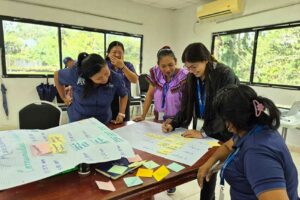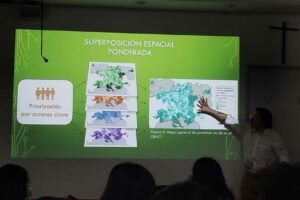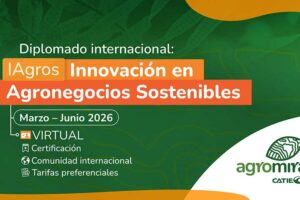GANEMOS Master's Program Encourages Students to Engage in Real-World Business Practices
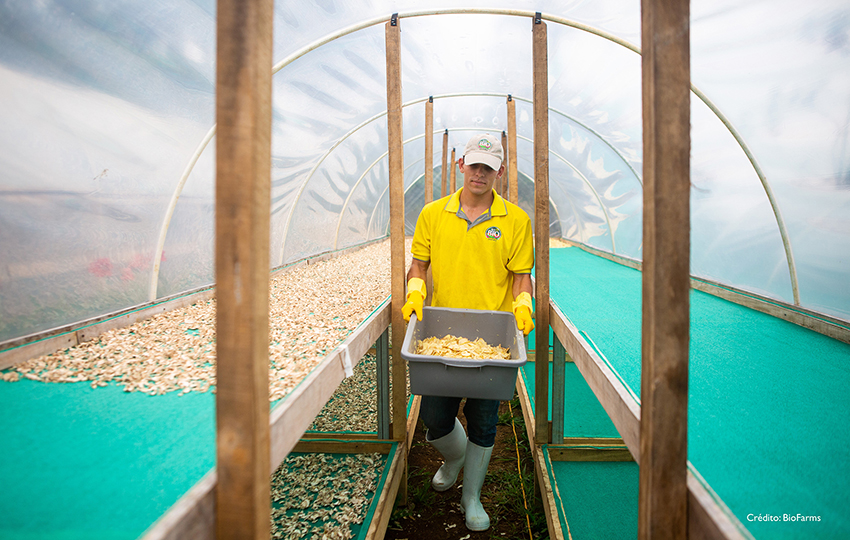
- Twenty-three people from 12 Latin American and Caribbean countries were able to apply their knowledge of sustainable business practices with currently operational enterprises.
Developing a business model with a real enterprise was the main activity in the Sustainable Business Models course, part of the Master's in Agribusiness and Sustainable Markets Management (GANEMOS). The course is taught by María Inés Miranda, a Chilean professor with extensive experience in the field.
"The goal of the course is for students to understand how demands for sustainability arise and the close link between consumption and environmental issues," explained Miranda, who is also the founder of INNOVATURE and Director of Content at Wise Women Chile.
Additionally, the 23 students, who come from 12 countries in Latin America and the Caribbean, learned how the relationship between consumption and resource depletion could be corrected, the importance of focusing on the entire supply chain, and the necessity of effectively communicating sustainability in these innovative models.
This group activity involved the participation of six enterprises from Ecuador, Mexico, Costa Rica, Peru, and Colombia.
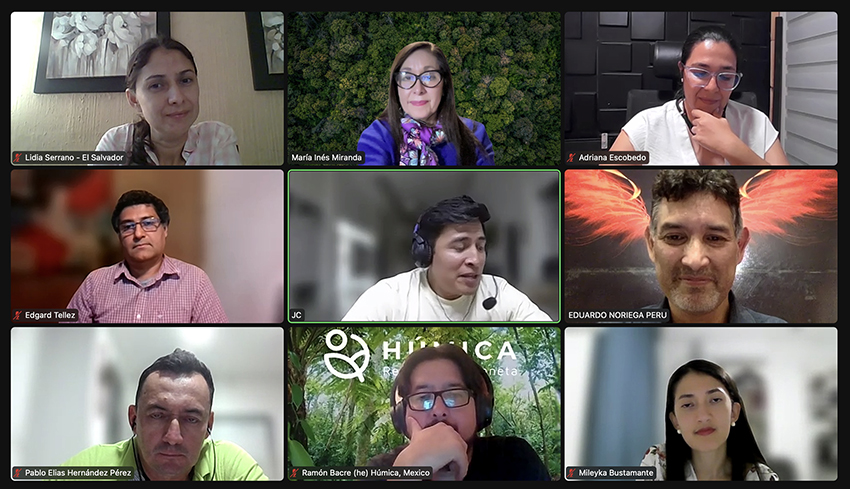
Tangible Results
Miranda shared that in the real world, students are always interacting with people and organizations to create value. In this specific case, they had to directly contact an entrepreneur, schedule meetings, and obtain detailed information about their business.
"Interacting with enterprises that are outside the students' area of expertise gives them an expanded vision of their own capabilities as they realize how their diverse knowledge can be applied in different contexts," explained the professor.
As a final result of this academic effort, renewed business models were developed for each of the participating enterprises.
Diverse Enterprises
Of the six participating enterprises, two were from Mexico. The first, Humica, is an enterprise that seeks to combat the effects of climate change through soil-related practices. The second was Mar Dosal, a socio-environmental consulting company that works on ocean preservation, responsible management of aquaculture and fisheries resources, and the promotion of healthy marine and coastal ecosystems.
From Ecuador, students worked with Café de la Pampa, an enterprise of specialty coffee producers from Loja. Meanwhile, in Peru, a group of students collaborated with Indarley, a family association promoting high-quality cocoa production in Jaen, Cajamarca, Peru.
Biofarms, an enterprise from Costa Rica, is defined as a network of environmentally friendly bio farms led by women and young rural people who grow and produce 100% natural products.
Finally, in the Colombian enterprise called Taiba Artesanías y Arte, they manufacture and teach the creation of textiles by an indigenous community, focusing on aspects such as environmental protection, maintaining ancestral practices, and material reuse.
In 2025
Next year, a new group of students will develop similar activities with enterprises seeking innovation and looking for advice and support. Therefore, if you have an enterprise and wish to apply, you can fill out your information in the following form: https://forms.gle/UuAUbkdEBQzo2T7z7
More information:
Adriana Escobedo A.
Academic Coordinator of the GANEMOS master's program
Environmental Economics and Sustainable Agribusiness Unit (UEAAS/EfD)
CATIE
escobedo@catie.ac.cr
+(506) 2558-2075
WhatsApp: +(506) 8598-5189
Written by:
Marianela Argüello L.
Communication and Knowledge Management Officer
Environmental Economics and Sustainable Agribusiness Unit (UEAAS/EfD)
CATIE
marguello@catie.ac.cr

